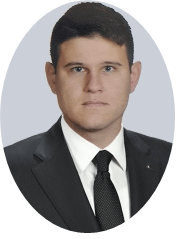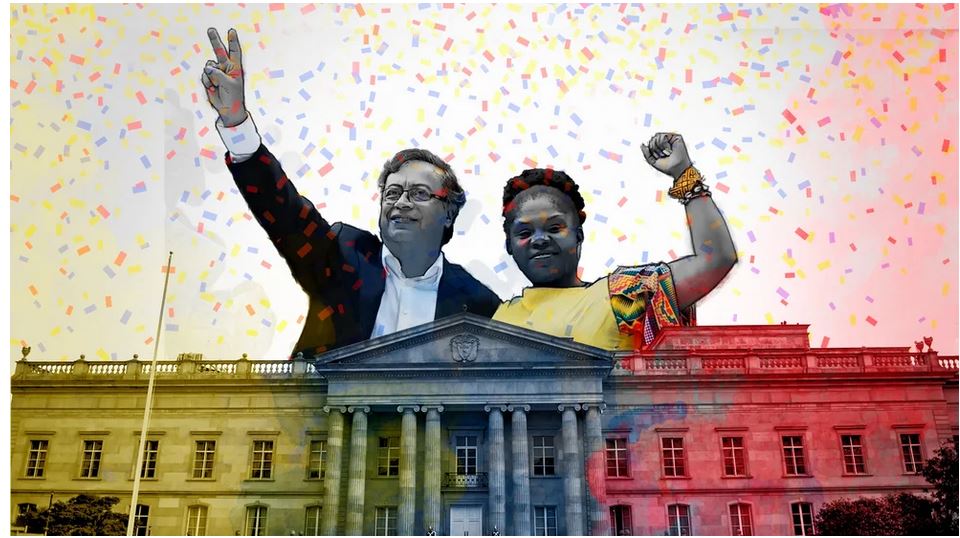The election process in Colombia ended on June 19, which had been going on for about three months. The second round of the elections, which is of undeniable importance for the country, resulted in the victory of Gustavo Petro (president) and Francia Marquez (vice-president), the candidates of a leftist coalition called Pacto Historico (Historical Pact). This victory of Petro and Marquez, who stand out with the motto of change, is a crucial turning point for the country.
2022 Elections in Colombia
2022 has been a year of election for Colombia. The first elections, the Senate and House, were held in March. In both the House and Senate elections, Pacto Historico, led by Gustavo Petro and Francia Marquez, was the group with the highest votes, winning 20 chairs in the Senate and 28 chairs in the House.1 After the Senate and House elections, the first round of the presidential elections was held on May 29. In the first round, Petro ranked first with approximately 8 million votes, with a rate of 40%. On the other hand, 77-year-old businessman Rodolfo Hernandez, who surprisingly ranked second, got around 5 million votes (28%).2 Thus, these two candidates competed in the second round.
Petro continued his campaign which he started before the elections in March, after the first round, and used different channels, for instance social media, discussion programs such as political debates, and regional visits to reach the voters. Nevertheless, surprisingly, Rodolfo Hernandez, who came second in the first round, did not come together with the voters except for his social media posts and avoided participating in political discussions. Especially when he turned down requests to participate in the political debates with Petro, he was presented as a cowardly hiding “leader.”3 Despite this, he achieved very close results with Petro in the surveys conducted after the first round. In such a mixed political environment, the country went to the polls on the 19th of June.
Historic Victory of the Colombian Left
The June 19 elections, which had the highest participation rate in recent years, with a rate of approximately 58%, resulted in the victory of Pacto Historico led by Gustavo Petro and Francia Marquez.4 Thus, a left-wing government came to power for the first time in the country’s nearly 200-year republican history. In addition, Marquez as a social activist who advocates for minority groups, victims of violence, feminism, and human rights, will be the first African-American woman to become the vice president in Colombia. Considering the diversity in the country, the fact that many different minority groups gain representation with the vice presidency of Marquez signifies the beginning of a historical transformation for Colombia.
Background of the Victory
Gustavo Petro will be Colombia’s first left-wing president in the country’s history. Colombia has never fully solved the problem of social and economic inequality since its independence. The country could not implement a comprehensive rural reform. There had always been a massive gap between the rich and the poor. The illegal economies like cocaine trafficking and illegal mining even worsened this situation and have been feeding the armed groups in Colombia. In addition to these general problems, Uribism, named after the former right-wing president Alvaro Uribe (2002-2010), even tipped the balance in favour of the rich. It also deepened corrupt relations in the country, which included politicians, bureaucracy, the private sector, and the mafia. After Uribe, Juan Manuel Santos, who was the defence minister during the Uribe administration, was elected as the president from the Union Party for the People of which Alvaro Uribe was also a member until 2012. However, the Santos government did not follow a strictly Uribist line and initiated a peace process with the FARC. On the other hand, there was no radical difference in the general political structure of the country during the Santos era as well. After Santos, the government of Ivan Duque came to power in 2018 from Alvaro Uribe’s political party, Democratic Centre, and completely returned to the Uribist line. During Duque’s presidency, many people criticized him for being a puppet of Uribe and argued whether the absolute ruler of Colombia was Uribe himself.
During Duque’s rule, the country’s economy worsened, inequality and poverty increased, and violence and conflict, which were relatively suppressed during the Santos period, intensified.5 These factors increased the frustration in Colombian people. Moreover, because of the problems mentioned above and corrupt relations, there started to emerge an opposition against Uribism in the country. This triggered the desire for change in Colombia. In essence, both candidates, Petro and Hernandez, who competed in the second round of presidential elections, promised to change the Uribist system. However, the Colombian society showed the strength of its desire for change by electing Gustavo Petro, a former M-19 guerrilla, as the country’s first leftist president.
What to expect?
The government, which will assume power officially on August 7, has economic and social transformation goals in addition to its policies for almost every segment of society.6 Likewise, the public has many expectations from the new government. Colombia has proven that it wants a change with these election results, so the government must work hard to meet the expectations. As they promised, they will strive to become the government of the citizens by closing the gap between the rich and the poor while working on a new robust and productive economy. In this regard, we may expect social and economic reforms, including restorations in education and health systems. A more sensitive and active approach in the struggle against climate change is also very likely in the coming years.
Another expectation is related to implementing the peace deal with the FARC. Since 2018 there have been many problems in the execution of the 2016 peace deal, mostly because of the reluctance of the Duque government. There emerged many issues related to the security of former FARC members, implementation of Territorially Focused Development Plans (PDET) program, the fight against illegal drugs, and land reform. In addition to implementing the 2016 peace deal, there is also an expectation that the Petro administration will make peace with other armed groups like the ELN. These steps will be very crucial in ending the violence in the country.
As a final remark, we should argue that the job of President Gustavo Petro will not be easy. First of all, although Petro became the president, the Colombian left is still the minority in both houses of the Colombian Parliament. Moreover, it will not be easy for Petro to break the aforementioned corrupt relations that have been formed over many decades and ossified under Uribism. Petro will have to put a spoke in wheel of the beneficiaries of the existing corrupt system. There is no question that there will be resistance from some interest groups. We believe this term will also determine the fate of the left in Colombia. People voted for ideals with high expectations. In the next four years, the performance of Petro will be decisive in addition to these ideals.

Dr. Başar Baysal, Ankara Science University
Basar Baysal is working as an Assistant Prof. Dr. in the Department of Political Science and Public Administration at Ankara Science University. Previously he worked as a Post-Doctoral Research Fellow at Universidad del Rosario in Colombia and conducted research on the Colombian peace process in 2020 and 2021. He holds an MA degree from the International Relations department at Marmara University and gained his Ph.D. degree from the International Relations Department at Bilkent University in 2017. His research interests include Critical Security Studies, Securitization Theory, Environmental Security, Peace Research and DDR Processes, Organized Crime, and Latin America. Dr. Baysal is the author of the book titled Securitization and Desecuritization of FARC in Colombia: A Dual Perspective Analysis.

E. Nur Sezek, Universidad Externado de Colombia
E. Nur Sezek continues her Ph.D. studies in Political Studies at the Universidad Externado de Colombia. She holds a MA degree in International Relations from Akdeniz University. She has been continuing her research on Latin America in Colombia since 2020. Her research interests include Latin American studies, Conflict Studies-Peace Research and Turkey’s relations with Latin America.
To cite this work : Başar Baysal & E. Nur Sezek “ Colombia Voted For Change:The Australian Federal Election result will have an impact on the health of democracy ”, Panorama, Online , 29 June 2022, https://www.uikpanorama.com/blog/2022/06/29/columbia-ele/
Copyright@UIKPanorama. All on-line and print rights reserved. Opinions expressed in works published by the Panorama belongs to the authors alone unless otherwise stated, and do not imply endorsement by the IRCT, Global Academy, or the Editors/Editorial Board of Panorama.


